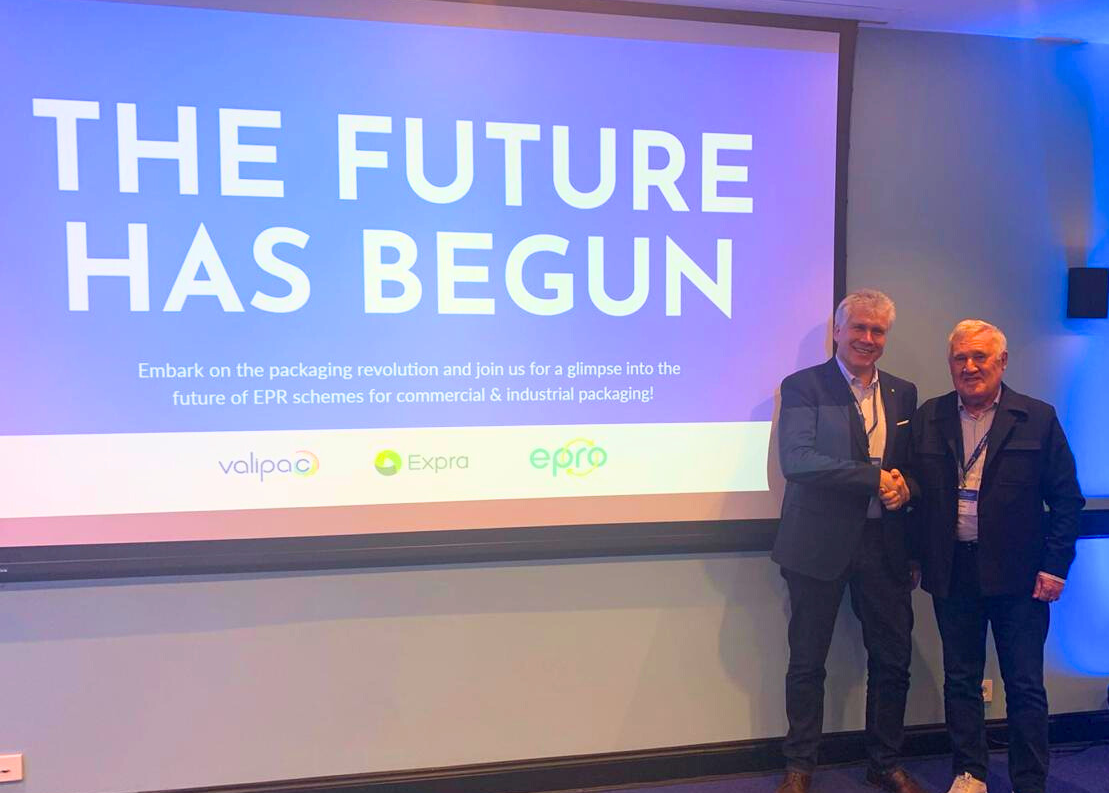News and Statements

UKRPEC participated in a seminar on commercial and industrial packaging waste management in Brussels
In accordance with the Packaging and Packaging Waste Directive (PPWR), all EU member states are required to establish producer responsibility schemes for all packaging by the end of 2024, covering both commercial and industrial packaging.
The mandatory application of the EPR principle for commercial and industrial packaging is a new requirement, prompting packaging and goods in packaging manufacturers to share experiences and discuss optimal implementation strategies. However, as only a few member states currently have systems in place for commercial and industrial (C&I) packaging, it is crucial to highlight existing initiatives and exchange best practices. The successful event brought together over 150 participants from more than 30 countries worldwide, underscoring the global significance and relevance of this conversation. Given the deadline for the implementation of Extended Producer Responsibility (EPR) schemes for (C&I) packaging in all member states by the end of this year, the urgency of discussing this issue was exceptionally important. Achieving harmonization of EPR schemes for C&I packaging across Europe is crucial for the industry’s development. The event significantly improved understanding of diverse approaches, marking an important step towards this harmonization. It’s noteworthy that the adoption of amendments to the Packaging and Packaging Waste Directive on April 24, coinciding with the mentioned seminar, enhances the prospect of improved coordination among states in the near future. Specifically, discussions revolved around mechanisms and methodologies for tracking commercial and industrial packaging, contributions to EPR organization activities, which producers are responsible for, and so forth.
The topic is also relevant for Ukraine, as soon, after the Verkhovna Rada adopts the Law “On Packaging and Packaging Waste,” the EPR system for packaging waste, including commercial and industrial packaging, will be launched in our country.
It should be recalled that commercial packaging is used to transport products from production to the point of sale to prevent damage. This includes group and transportation packaging, such as various crates, pallets, containers, predominantly made of cardboard, paper, plastic (mostly film), wood, and so on. Typically, consumers do not directly interact with this type of packaging.
Commercial packaging waste is the most suitable for recycling. Commercial packaging does not contain any food impurities after use and does not require complex sorting. It’s also easy to collect, as retailers usually accumulate commercial packaging waste in a specially designated areas.
As explained by Volodymyr Slabyi, Head of the Executive Committee of UKRPEC, establishing producer responsibility for goods in packaging encompasses accountability for managing all packaging waste stages, including commercial and industrial, thus making producers responsible for the entire packaging lifecycle from design development to waste recycling, taking environmental requirements into account.
“This is a fundamental decision, since commercial and industrial packaging waste is part of all packaging waste that will be declared by manufacturers and taken into account in recycling targets,” says Volodymyr Slabyi. “This approach promotes separate waste collection and the overall implementation of circular economy principles, as manufacturers invest all the funds from the sale of recyclable materials in the relevant infrastructure. I am convinced that we need a similar provision in Ukrainian legislation. This step will bring us closer to the EU legal framework, which Ukraine will soon become a part of.”
UKRPEC is ready to provide stakeholders with its expertise and collected data on the global experience of commercial and industrial packaging waste management, sectoral legislation of different countries, etc.
